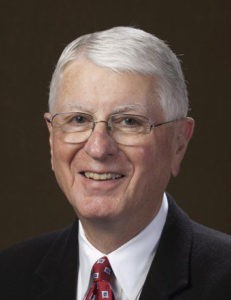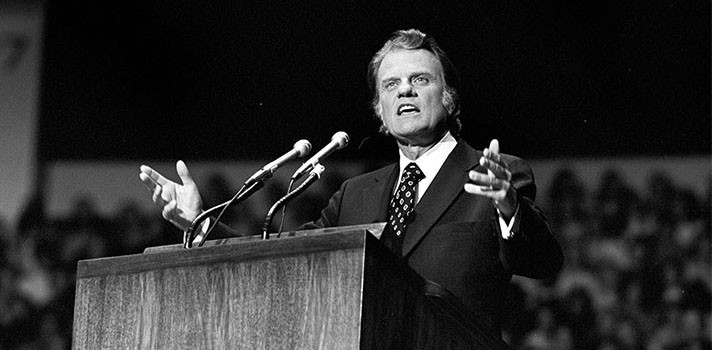Like many of you, I have a vivid memory of watching Billy Graham’s charismatic oratory, particularly his crusade in Australia in April 1979. His platform catch phrase, “The Bible says,” still rings true even now.
Some 50 years ago, I began an academic fascination with the public speech in a public space. Whether sermonic, secular or a panoply of all the above, I started learning the ways of speech criticism. I wanted to know how various speakers conceived, compiled and delivered an address. The appeal of the planned public speech still calls to me today.

Carl Kell
Like many of you, I have heard thousands of speech events in the church space. From my seat in a church choir loft spanning 60 years, I watched as congregations responded with every imaginable nonverbal expression and in some ways I couldn’t imagine.
I learned that each speech or sermon is never about the message or the presentation; the event is always about the audience. Even in the smallest church’s Sunday morning attendance — can you imagine seven sitting in front of you? I know a pastor who sees this number nearly every Sunday — these attendees deserve the best effort as much as or more than several hundred in any established, large downtown church, post-pandemic.
The question for any viewer/congregation always has been the same since before the great World War and after: Does the Lord, through the message, have a word for me today?
Orators of the past had a general speech plan, much like the ground game plan of legendary coach Woody Hayes of Ohio State University: “Three yards and a cloud of dust!” Sermons then had a similar plan: Three main points (often alliterative in form), an application, and an altar call — a hard-driving fullback of a persuasive appeal for personal acceptance of Jesus Christ as Lord and Savior.
Oh, to be sure, the farther one drives south of the Ohio River, the sermonic drumbeat of yesterday is still heard in nearly every evangelical church. As you know, there are countless new church footprints all over America that offer a different sermonic/service experience. Sermons now? The possibilities seem endless.
I have sampled or been exposed to new waves of sermon “talk.” Some can be characterized as conversational monologues called “sermons” that start somewhere and go nowhere. Far too often, a pastor or speaker has a point to make emanating out of personal experience by lining up story after story, thinking that stories, like watching someone else’s home movies, will be informative and persuasive. They usually are not.
“Perhaps many of us have become wary of sermons and speakers whose public words take off, try to land, and run out of runway by 11:55 on Sunday morning.”
Perhaps many of us have become wary of sermons and speakers whose public words take off, try to land, and run out of runway by 11:55 on Sunday morning. In Southern Baptist life, there are some 47,000 churches — with 200-plus megachurches in the list — that typically serve 150 or fewer members, often with about 50 members returning regularly post-pandemic. Doesn’t every church member and visitor deserve some return to a well-prepared, traditional exposition or at least a better organized, relevant sermon for today?
Ask yourself: When was the last time you heard a pastor or speaker intone a phrase such as, “The Bible says?” When was the last time a sermon was arranged in such a way that you could take notes, remember and ponder the speaker’s analysis or interpretation of what “the Bible says”?
At the conclusion, I want to be inspired, surprised, amused, threatened and called into account for the sins of omission and commission in ways that make me sit up straight and feel motivated.
“I want to be inspired, surprised, amused, threatened and called into account.”
Amidst all the swirling emotions generated by that well-crafted sermon, there should be a moment that makes the hour spent in a pew well worth the effort.
Sermons should point us to what the Bible says about issues and problems we face every day. Then, as the pastor uncovers ideas and points of view that lift the spirit, we begin to understand what the Bible’s message is for us.
Then, as the sermon comes in for a landing close to the noon hour, two thoughts should come to mind. First, “I never looked at life that way.” Second, the listener nods approvingly, “I never saw that coming.”
In contrast to the instant media answers of modern technology, I want to hear next Sunday a clear explanation of what “the Bible says.”
Carl L. Kell is professor emeritus in the department of communication at Western Kentucky University in Bowling Green, Ky. He has written and edited books on the dramatic changes in the Southern Baptist Convention. He is working on the next book, an analysis of the late 21st century dissolution of the SBC, to be called Requiem – In Remembrance of the Southern Baptist Convention.

